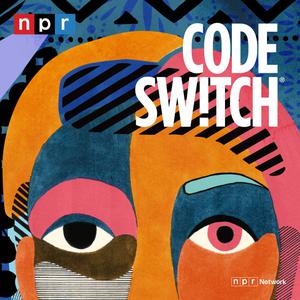
Embedded
NPR
Embedded, NPR's original documentary podcast, unearths the stories behind the headlines. Police shootings. Towns ravaged by opioids. The roots of our modern immigration crisis. We explore what's been sealed off, undisclosed, or never brought to light. We return with a deeply-reported portrait of why these stories, and the people behind them, matter.Supermajority is a new 4-part series from NPR's Embedded, in partnership with Nashville Public Radio.Reeling from a mass shooting at their kids' school, three Tennessee moms become advocates for gun control. But this isn't a story about gun control. It's about what they find when they step inside their state capitol for the first time. The women, all lifelong conservatives, are met by a Republican majority in the legislature that looms large and appears unwilling to consider their plea.Host and reporter Meribah Knight has been following the mothers as they confront powerful lawmakers, a dizzying legislative process and most importantly - their own long-held beliefs. What can these women accomplish? How will the work change them? And what might it all reveal about democracy?Support in-depth storytelling that matters by subscribing to Embedded+ and unlock early access to new episodes and sponsor-free listening. Learn more at plus.npr.org/embedded
- 32 minutes 23 secondsTested: Running in CirclesEpisode 4: In 2009, South African sprinter Caster Semenya won gold at the World Championships. But instead of a celebration, she endured endless speculation about her body, her biology, and her gender. And soon, sports organizations would launch a new round of regulations, lead to multiple court cases, and require sporting organizations to justify their claim that DSD athletes have an unfair advantage.
Learn more about sponsor message choices: podcastchoices.com/adchoices
NPR Privacy Policy25 July 2024, 7:00 am - 39 minutes 32 secondsTested: Card-Carrying FemalesEpisode 3: We meet Kenyan sprinter Maximila Imali, who—like Christine Mboma—has been sidelined by DSD policies. She makes a different choice from Christine: to fight the regulations in court. And we learn about a previous fight, when scientists, athletes, and journalists spent thirty years trying to end an earlier version of sex testing.
To listen to this series sponsor-free and support NPR, sign up for Embedded+ in Apple Podcasts or at plus.npr.org.
Learn more about sponsor message choices: podcastchoices.com/adchoices
NPR Privacy Policy22 July 2024, 7:00 am - 34 minutes 3 secondsTested: Questions of a Physical NatureEpisode 2: We go back almost 100 years, to the beginning of women's inclusion in elite sports. It turns out that men had an odd variety of concerns about women athletes. Some doubted these athletes were even women at all. And their skepticism resulted in the first policies requiring sex testing. To listen to this series sponsor-free and support NPR, sign up for Embedded+ in Apple Podcasts or at plus.npr.org.
Learn more about sponsor message choices: podcastchoices.com/adchoices
NPR Privacy Policy18 July 2024, 7:00 am - 38 minutes 54 secondsTested: The ChoiceEpisode 1: Would you alter your body for the chance to compete for a gold medal? That's the question facing a small group of elite athletes right now. Last year, track and field authorities announced new regulations that mean some women can't compete in the female category unless they lower their body's naturally occurring testosterone levels. You'll meet one of those runners, Christine Mboma, a reigning Olympic silver medalist, and hear about the difficult choice she faces. To listen to this series sponsor-free and support NPR, sign up for Embedded+ in Apple Podcasts or at plus.npr.org.
Learn more about sponsor message choices: podcastchoices.com/adchoices
NPR Privacy Policy15 July 2024, 7:00 am - 2 minutes 58 secondsIntroducing Tested from NPR and CBCWho gets to compete? Since the beginning of women's sports, there has been a struggle over who qualifies for the women's category. Tested follows the unfolding story of elite female runners who have been told they can no longer race as women, because of their biology. As the Olympics approach, they face hard choices: take drugs to lower their natural testosterone levels, give up their sport entirely, or fight. To understand how we got here, we trace the surprising, 100-year history of sex testing. Tested is a new 6-part series from NPR's Embedded and CBC. Hosted by journalist Rose Eveleth, it launches July 15, ahead of the 2024 Olympic Games. Embedded+ supporters enjoy early and ad-free access.
Learn more about sponsor message choices: podcastchoices.com/adchoices
NPR Privacy Policy12 July 2024, 7:00 am - 50 minutes 15 secondsSupermajority: The Could-Be CandidateThe end of the 113th General Assembly of Tennessee is fast approaching. Melissa Alexander, Mary Joyce and Sarah Shoop Neumann have reached a new stage in their understanding of the statehouse. But they also face a new challenge: how to square their long-held conservative beliefs with the new politics they've picked up in the year since the shooting at their kids' school. When two of the women make a controversial decision, it threatens to upend everything they've worked for and splinter the bonds they've formed with one another. How will the women continue on? And what do the bills they've been tracking – ones that pass, and those that fail – mean for Tennessee's future? To listen to this series sponsor-free and support NPR, sign up for Embedded+ in Apple Podcasts or at plus.npr.org.
Learn more about sponsor message choices: podcastchoices.com/adchoices
NPR Privacy Policy11 July 2024, 9:35 am - 39 minutes 47 secondsSupermajority: A Common-Sense CaucusMelissa Alexander came to the Tennessee statehouse to convince members of the Republican party – her party – to adopt gun control measures after a mass shooting at her son's school. A year later, she doesn't feel like she's gotten through to many lawmakers. But there's at least one Republican senator who's made Melissa and the other Covenant moms feel welcome: Richard Briggs. Briggs has been in office for about a decade. He's a doctor and an army veteran. And recently, he's had to navigate a statehouse in transition. Briggs represents a faction of the Republican majority that isn't often visible: those who are concerned about the GOP's shift further to the right. They feel that they are a minority within the majority – stewards of what the party used to be. As Melissa contemplates a big decision, we turn to Briggs' story. What can more moderate Republicans achieve in the Tennessee legislature? And will Melissa decide to follow the path that Briggs has already been down? To listen to this series sponsor-free and support NPR, sign up for Embedded+ in Apple Podcasts or at plus.npr.org.
Learn more about sponsor message choices: podcastchoices.com/adchoices
NPR Privacy Policy2 July 2024, 7:43 pm - 48 minutes 5 secondsSupermajority: The Roll CallIt's been four months since the Covenant moms – lifelong conservatives Melissa Alexander, Mary Joyce and Sarah Shoop Neumann – pleaded with their lawmakers to pass gun control measures during a special session at the Tennessee statehouse. Now they're back – for months, not days – and this time, they feel prepared to face the GOP-dominated legislature. But when the 2024 legislative session begins, the mothers realize that the Republican majority's new bills may be more complicated than they anticipated. The women discover a long line of dissenters flocking to the statehouse, to protest bills about abortion, education, police violence and LGBTQ rights. Will the women stand alongside these other constituents and broaden their objectives beyond gun control? And what happens when they begin to imagine unseating one of their lawmakers? To listen to this series sponsor-free and support NPR, sign up for Embedded+ in Apple Podcasts or at plus.npr.org.
Learn more about sponsor message choices: podcastchoices.com/adchoices
NPR Privacy Policy25 June 2024, 8:42 pm - 48 minutes 51 secondsSupermajority: The Covenant MomsIn 2023, a mass shooter attacked The Covenant School, a private Christian school in Nashville, Tennessee, and three mothers were compelled to act. Their mission: help pass some kind of gun control in one of the reddest states in the country, a state where the Republican Party has a supermajority in the legislature. But these women aren't your typical gun control activists. They're lifelong conservatives, believers in the Second Amendment and – at first – sure that their own party will understand their concerns. In episode 1 of Supermajority from NPR's Embedded, host Meribah Knight follows the women as they enter the state capitol for the first time in their adult lives. Will these political newcomers get what they came for? And what happens if they challenge those in power to do it? To listen to this series sponsor-free and support NPR, sign up for Embedded+ in Apple Podcasts or at plus.npr.org.
Learn more about sponsor message choices: podcastchoices.com/adchoices
NPR Privacy Policy18 June 2024, 9:19 pm - 3 minutes 2 secondsIntroducing Supermajority from NPR and WPLNSupermajority is a new 4-part series from NPR's Embedded, in partnership with Nashville Public Radio. As Americans focus on national politics this election year, we zoom in on one state and its political majority. Host Meribah Knight has been following three conservative moms in Tennessee over the course of a year as they learn to navigate their Republican-controlled state legislature. These political newcomers will confront powerful lawmakers, a dizzying legislative process and most importantly – their own long-held beliefs. What can these women accomplish? How will the work change them? And what might it all reveal about democracy? Launching Thursday, June 20. Embedded+ supporters enjoy early and ad-free access.
Learn more about sponsor message choices: podcastchoices.com/adchoices
NPR Privacy Policy17 June 2024, 7:00 am - 32 minutes 47 secondsField Notes: On Losing the Gaza They KnewThe second in a two-part special series featuring conversations between Embedded host Kelly McEvers and NPR reporters who have been on the ground during the current conflict between Israel and Hamas In this episode, Morning Edition's Leila Fadel paints an intimate portrait of displacement in Gaza. She shares voice memos she's been receiving from a college student trying to survive and the story of a family that escaped the war only to find that it had followed them home.
Learn more about sponsor message choices: podcastchoices.com/adchoices
NPR Privacy Policy7 March 2024, 1:18 am - More Episodes? Get the App
Your feedback is valuable to us. Should you encounter any bugs, glitches, lack of functionality or other problems, please email us on [email protected] or join Moon.FM Telegram Group where you can talk directly to the dev team who are happy to answer any queries.
 Code Switch
Code Switch
 Throughline
Throughline
 Radiolab
Radiolab
 This American Life
This American Life
 Reveal
Reveal
 Serial
Serial